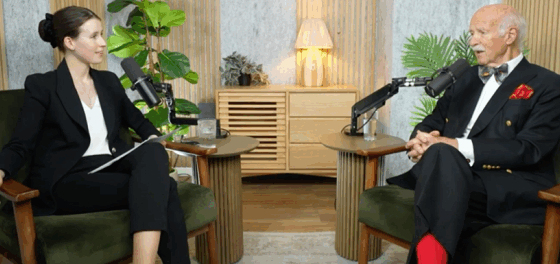Hubspot blog lost 75% of their organic traffic last year. AI search is eating organic traffic. What should hotels do? How media landscape is shifting. Getting more creative is cheaper and more.
Hello,
There’s so much AI news currently tons of it is hype. Finding actually insightful stuff isn’t so easy. Huge investment rounds are cool, but they don’t change life in the hotel industry at least not now. But other things are changing life in the hotel industry. So we should stay up-to-date.
Best, Martin
Sponsored by Klairhaus. Support the newsletter, treat someone to great office gadgets.
Is AI Changing the hotel website?
Real-time web search systems like ChatGPT and Perplexity, is transforming the search landscape and how users interact with information. It is prompting marketers to reconsider their Product Detail Page (PDP) optimization, for hotels that would be the Rooms page… or the booking engine page. We need to create more more contextually relevant, user-intent focused, content and pages. But we have a unique problem in our industry which is that our PDPs are sitting in two environments. The website and the booking engine. So how can we optimize them? This is a hotel website problem that has been a problem for a while now. See also my column below.
OPTIMIZATION CHALLENGE
Italy’s New Law on Hotel Reviews
Italy has proposed a law to combat fake and paid reviews in the hospitality sector, requiring online reviewers to provide identification and proof of visit. The Italian Antitrust Authority will enforce this legislation, which includes fines and the ability for businesses to request the removal of outdated or false reviews. While this will help in ensuring the authenticity of reviews, it will also decreased review participation. Considering the importance of reviews, something needs to be done to guarantee trust. It does seem a little heavy handed however.
PROTECTING HOTEL REVIEWS
About me: I'm a fractional CMO for large travel technology companies helping turn them into industry leaders. I'm also the co-founder of 10minutes.news a hotel news media that is unsensational, factual and keeps hoteliers updated on the industry. AI Agents and APIs
Luckily for the hotel industry, after a decade of campaigning, most providers now have APIs for their applications. They’re still complex, and often require expensive certification. But as AI agents start becoming a thing, we’re going to start seeing layers on top of our existing solutions. Imagine custom built AI layers on top of your PMS – reporting is one easy win. But even complex tasks such as reassigning rooms in bulk based on availability could be automated.
AI SPECIALIZATION ADVANCES
The shifting media landscape
An analysis shared over 28 days on X/Twitter reveals the media industry’s challenges, including stagnating engagement and the rise of disruptive forces like GenAI. Traditional media is facing upheaval, with large tech platforms dominating. This poses a challenge especially in the luxury sector, which resists advertising in uncontrolled environments. New media is growing and traditional media is shrinking. Content creators are a good way to control environment. But they don’t just accept a “full spread ad” because you’re paying. Advertising while not giving the impression of advertising was great in paper magazines. But less so on a sponsored post.
MEDIA INDUSTRY CHALLENGES
Creativity is cheaper
A Meta executive shared how a large retailer’s promotional campaigns demonstrated that creative content significantly impacts reaching new audiences. Creative ads engages with people based on interest without incurring additional costs. It is a lot easier to use precision targeting and increase the volume of ads. But it isn’t cheaper. Good ads do matter.
CREATIVE MARKETING IMPACT
Destination Marketing Management
Addressing peak tourism in certain destinations by promoting lesser-known destinations as quieter alternatives to popular locations, is the best way to fix the “overtourism” concerns. This shift from destination marketing to destination management reflects the need to manage the flow of tourists and preserve the quality of visitor and local experiences. This trend towards destination management by humans or with AI will lead to more sustainable tourism practices and a better balance between visitor numbers and destination capacity.
DESTINATION MANAGEMENT SHIFT
Podcast: I was invited on the Hospitality Daily Podcast and spoke about technology in hospitality, some thoughts on what wont change in hospitality, and why I co-founded 10minutes.news. Best, MartinOpinion
Organic traffic and hotel marketing’s next challenge
HubSpot’s organic traffic has experienced a pretty scary decline, losing 75% of its traffic in 2024. For a company that built an SEO empire from 5 million to 10 million visits in just two years, this kind of plunge—from 10 million to 2.5 million—deserves attention.
Two potential culprits here: a Google algorithm update or the rise of AI-generated search. While Google may have penalized HubSpot’s SEO strategy for prioritizing volume over relevance, the deeper concern is how AI is reshaping search behavior altogether. For hoteliers, this represents a challenge.
The traditional search landscape—images, reviews, and rankings—has been the bedrock for boutique hotels to showcase their unique appeal. But what happens when search evolves into AI-driven answers? Imagine queries that yield text-only results with basic details like price, location, and star ratings. How do you communicate your hotel’s distinctive charm when the customer never sees it?
This shift could fundamentally alter metrics. Click-through rates might plummet, replaced by hyper-relevant results that narrow down customer choices before a single image is seen. It’s the emotional hook—what drives bookings—that risks being sidelined. Emotion drives action, and the absence of visuals could stifle that spark.
Hoteliers must explore new strategies: investing in social platforms that emphasize visuals, finding innovative ways to distribute imagery, or leaning into storytelling that compels even in text. Social media, despite its challenges, might become the last frontier for showcasing style and ambiance.
The road ahead isn’t clear, but one thing is certain: adapting to this search evolution will require creativity and resilience. It’s time to rethink how we guide guests from discovery to decision, ensuring that emotion, not just analytics, continues to drive the industry forward.
“The essential difference between emotion and reason is that emotion leads to action while reason leds to conclusions.” - K. Roberts






